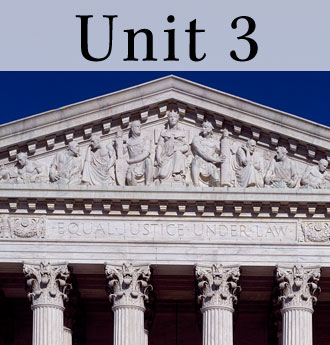Unit 3: How Has the Constitution Been Changed to Further the Ideals Contained in the Declaration of Independence?
Farber, Daniel A. Lincoln's Constitution. Chicago: University of Chicago Press, 2004. 256pp. ISBN: 978-0-22623-796-1. The Civil War brought some of the deepest, most critical constitutional questions to the fore. Farber examines those issues and pays special attention to their relevance to today. A well-written work by a fine scholar.
Fehrenbacher, Don E. The Dred Scott Case: Its Significance in American Law and Politics. New York: Oxford University Press, 1978. 741pp. ISBN: 978-0-19514-588-5. Winner of the Pulitzer Prize, it remains one of the best histories of a landmark constitutional case. Very readable and very interesting.
Friedman, Leon, ed. Brown v. Board: The Landmark Oral Argument before the Supreme Court. New York: The New Press, 2004. 416pp. ISBN: 978-1-56584-913-6. The Brown transcripts provide an opportunity for teachers and students to read for themselves everything that happened in oral argument of a case that's been called "the most important American act of government...since the Emancipation Proclamation." The questioning of Justices Thurgood Marshall, Hugo Black, Felix Frankfurter, and Robert Jackson are of special interest.
Horton, James O., and Lois E. Horton. In Hope of Liberty: Culture, Community and Protest among Northern Free Blacks, 1700?1860. New York: Oxford University Press, 1997. 340pp. ISBN: 0-19-504732-X. This book traces the history of free blacks in the colonial, early national, and antebellum North. The Hortons show that the story of African Americans is embedded in the history of America from its beginnings and are an integral part of its cultural development. It tells the story of a young America and developing America from a black-centered perspective. Available in paperback.
Keyssar, Alexander. The Right to Vote: The Contested History of Democracy in the United States. New York: Basic Books, 2000. 496pp. ISBN: 978-0-46502-969-3. Examines how states and the nation have expanded?and at times curtailed?the right to vote, from colonial times to the present. An extraordinary appendix includes twenty tables that track the right to vote, state by state, across categories such as race, gender, property requirements, and much more.
Kluger, Richard. Simple Justice: The History of Brown v. Board of Education. New York: Random House, 1975. 864pp. ISBN: 978-0-39472-255-9. Surveys the history of American slavery, the evolution and passage of the Fourteenth Amendment, and the famous Supreme Court case ordering desegregation of the public schools. One of the best case studies of a Supreme Court decision and the context in which it was set.
Miller, William Lee. President Lincoln: The Duty of a Statesman. New York: Alfred A. Knopf, 2008. 512pp. ISBN: 978-1-40004-103-9. An award-winning scholar, Miller explores the decisions "of utmost gravity" Lincoln made as a wartime president. The sections on Lincoln and the Declaration of Independence and on Lincoln's view of the Constitution and his interpretation of the powers it grants to the executive are illuminating.
Orth, John V. Due Process of Law: A Brief History. Lawrence: University Press of Kansas, 2003. 116pp. ISBN: 978-0-70061-242-0. Brief but accessible history of due process from its origins in medieval England to its applications in recent cases. Covers both procedural and substantive due processes.
Wilson, Douglas L. Lincoln's Sword: The Presidency and the Power of Words. New York: Vintage Books, 2006. 352pp. ISBN: 978-1-40003-263-1. A fascinating study of the origins, writing, and rewriting of Lincoln's most important presidential papers. Very helpful for understanding Lincoln's views on slavery and secession. Chapter Five, "Proclaiming Emancipation," is especially good.
-
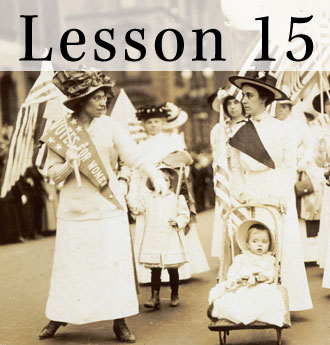 Lesson 15: How Have Amendments and Judicial Review Changed the Constitution?
Lesson 15: How Have Amendments and Judicial Review Changed the Constitution? -
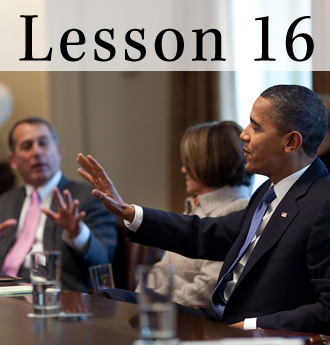 Lesson 16: What Is the Role of Political Parties in the Constitutional System?
Lesson 16: What Is the Role of Political Parties in the Constitutional System? -
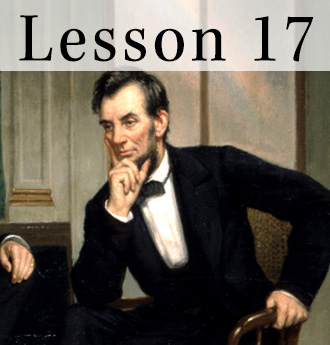 Lesson 17: How Did the Civil War Test and Transform the American Constitutional System?
Lesson 17: How Did the Civil War Test and Transform the American Constitutional System? -
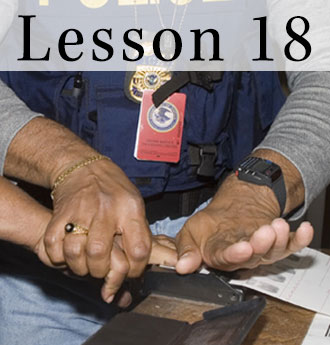 Lesson 18: How Has the Due Process Clause of the Fourteenth Amendment Changed the Constitution?
Lesson 18: How Has the Due Process Clause of the Fourteenth Amendment Changed the Constitution? -
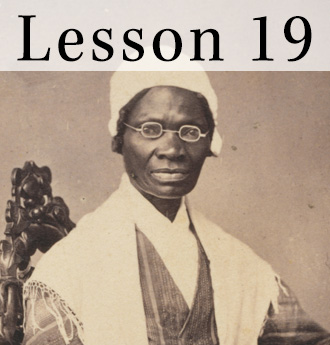 Lesson 19: How Has the Equal Protection Clause of the Fourteenth Amendment Changed the Constitution?
Lesson 19: How Has the Equal Protection Clause of the Fourteenth Amendment Changed the Constitution? -
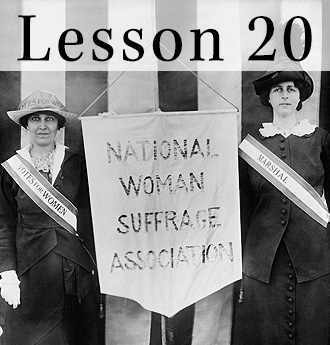 Lesson 20: How Has the Right to Vote Been Expanded since the Adoption of the Constitution?
Lesson 20: How Has the Right to Vote Been Expanded since the Adoption of the Constitution? -

